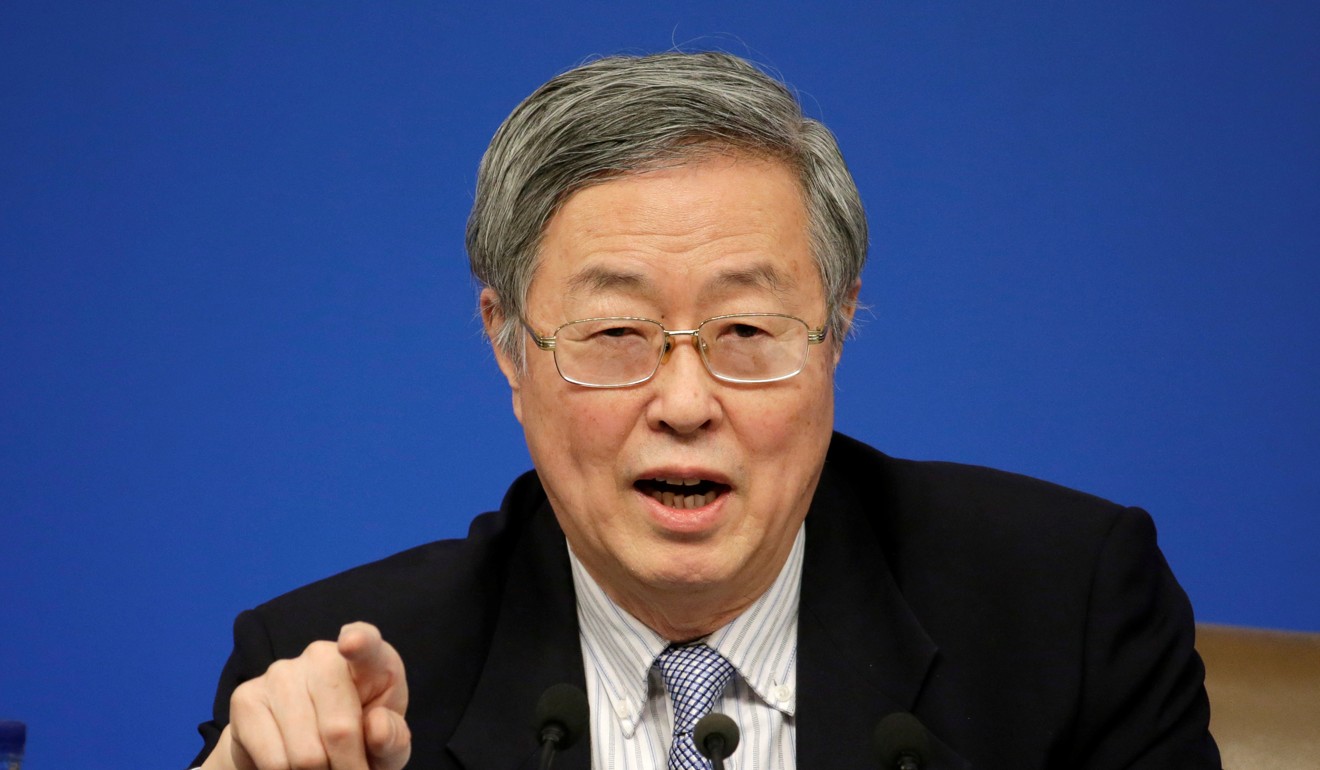
The perils of fintech: China’s former central bank chief issues a word of caution
- Country needs to judge which technologies are progressive and which are subversive, Zhou Xiaochuan says
- Authorities must fully assess the impact fintech might have on monetary policy and financial stability, he says
China has to consider more than economic and technological issues when dealing with new innovations such as blockchain, the former central bank chief said in defence of the country’s crackdown on bitcoin and other internet-enabled financing activities.
For all new technologies, the relevant authorities should review not only their cost and efficiency, but also the possible impact they might have on monetary policy, financial stability and even sovereignty, Zhou Xiaochuan told the annual conference of financial magazine Caixin in Beijing.
China orders banks to ‘improve political positioning’ and boost lending after October financial data disappoints
“We need to judge which ones are progressive technologies and which ones are subversive,” he said, adding that “technology must be used for the good things”, citing the use of the darknet for illegal activities, such as money laundering and financing terrorism.
His comments come amid a long-running campaign by Beijing to eliminate risk from the financial system caused by new technologies such as electronic payments, peer-to-peer lending and bitcoin trading.

Zhou, who retired as head of the People’s Bank of China (PBOC) in March after 15 years in charge, remains an important voice in financial circles, and currently serves as president of the China Society of Finance and Banking and deputy director general of the Boao Forum for Asia, China’s Davos.
Despite the tighter controls on new technologies in the financial sector, Zhou is a former advocate for bitcoin and as early as 2014 described it as an asset class – like rare stamps – and said the government had no plans to ban it. But in September 2017, Beijing deemed initial coin offerings illegal and ordered all mainland-based cryptocurrency exchanges to shut down.
Beijing bans bitcoin, but when did it all go wrong for cryptocurrencies in China?
Also during his tenure at the PBOC, Zhou granted more than 200 licences to third-party payment licences, mostly to private companies and IT giants, and set up the first digital currency research institutions among major central banks. The central bank also conducted research projects into digital currencies and electronic payments.
But not all of those plans developed the way the authorities hoped, Zhou said.
“We found that some licence owners were not actually interested in payment technology or the improvement of payment efficiency, only getting advanced payments,” he said, adding that many of the licences issued on a trial basis were not renewed this year.
Foreign investment in China stable in October, but US investment weak due to trade war
Regulators were also concerned about the growing dominance of the nation’s IT giants in the sector, which was not the central bank’s aim, he said. “We hope that there can be competitive development.”
While technologies can help to improve the efficiency of cross-border payments and reduce costs, China has been increasingly concerned about losing sovereignty over its monetary policy.
“We need to check how much it affects domestic macroeconomic control … and financial stability,” Zhou said.
Beijing is closely watching cross-border capital flows and exchange rates, both of which have been under pressure as a result of the United States repeatedly raising interest rates easing its domestic policy to shore up the economy.
Beijing to stabilise the yuan, but intervention to cushion – not halt – currency’s decline, say analysts
Zhou said there was no global coordination of cross-border payments or spillover on related policy.
Domestically, Beijing has drawn a red line for private investors and outlined several financial infrastructures, such as money printing, settlement and even a social credit system.
The PBOC has also set up the state-dominated China Nets Union Clearing Corp and Baihang Credit to take back dominance of the market from private investors.
“Financial infrastructures are public property and set high demands on stability and security. If something goes wrong, it could cause severe damage,” Zhou said.
However, the private sector could still participate in those financial infrastructures “under government guidance and supervision” and potentially through public-private partnership, he said.

